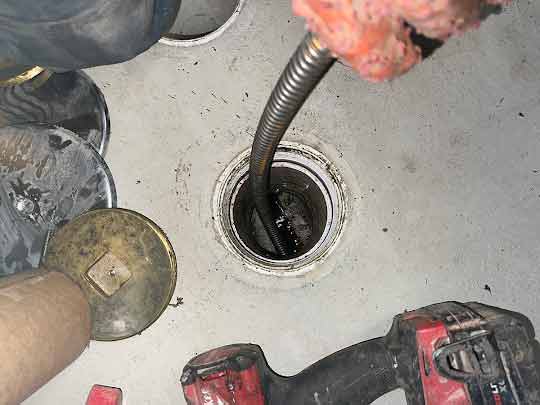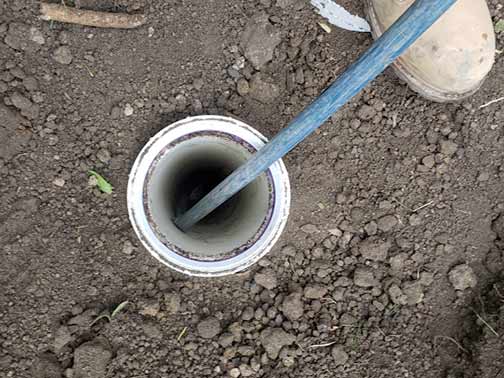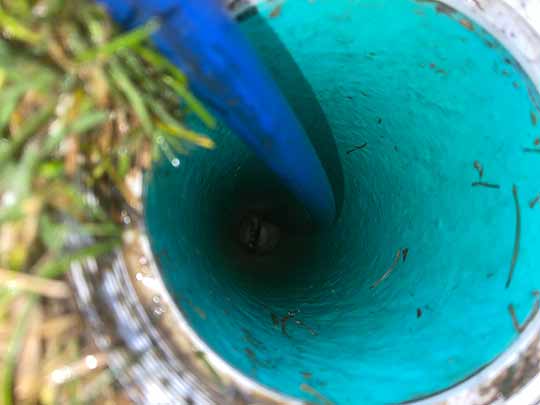Main Sewer Line Blockages: Causes and Solutions
Dealing with a main sewer line blockage can be a major headache for any homeowner or property owner. When the main sewer line gets clogged, it can result in unpleasant odors, slow drainage, and even sewage backups. It is crucial to address these issues promptly to prevent further damage and potentially costly repairs. In this article, we will explore the causes of main sewer line blockages and provide expert recommendations and techniques for unblocking them.
Understanding Main Sewer Line Blockages
The main sewer line is responsible for carrying wastewater from various plumbing fixtures in your home or property to the municipal sewer system. When this line becomes blocked or obstructed, it hinders the flow of wastewater, leading to numerous issues. The most common causes of main sewer line blockages include:
- Tree Roots: Tree roots are attracted to the moisture and nutrients in sewer lines. Over time, they can infiltrate the pipes, causing blockages and even pipe damage.
- Foreign Objects: Objects such as paper towels, sanitary products, and excessive toilet paper can accumulate and cause obstructions in the main sewer line.
- Grease Buildup: Pouring hot grease down the drain may seem harmless, but it can solidify and accumulate in the sewer line, leading to clogs.
- Collapsed Pipes: Older homes or properties with deteriorating pipes may experience collapsed sections, obstructing proper flow in the main sewer line.
- Improper Installation: Poorly installed sewer lines can have misaligned or offset sections, making them more prone to blockages.

Signs of a Blocked Main Sewer Line
Identifying a blocked main sewer line early can save you from extensive damage and costly repairs. Look out for the following signs that indicate a potential blockage:
- Multiple clogged drains: If multiple drains in your home are backed up simultaneously, it could be a clear indication of a main sewer line blockage.
- Gurgling sounds: Strange gurgling or bubbling sounds coming from your drains or toilet when water is running indicate a blockage in the main sewer line.
- Foul odors: Foul smells emanating from drains or sewer cleanouts can be a sign of a blockage.
- Slow drainage: Slow drainage in sinks, tubs, or toilets can suggest a partial blockage in the sewer line.
- Sewage backups: The most severe indication of a main sewer line blockage is sewage backing up into fixtures like toilets, showers, or sinks.
Expert Recommendations for Unblocking a Main Sewer Line
If you suspect a main sewer line blockage, it is essential to take immediate action to prevent further complications. While some minor blockages can be cleared using household remedies, more severe blockages may require professional assistance. Here are some expert recommendations and techniques for unblocking a main sewer line:
1. Initial Assessment and Inspection
Before attempting any unclogging methods, it is crucial to assess the severity of the blockage. Inspect the affected drains, look for signs of backup or standing water, and listen for any gurgling sounds. If the issue seems severe or beyond your expertise, it is best to contact a licensed plumber.
2. DIY Techniques
If the blockage is minor, you may try some DIY techniques to clear the main sewer line. These include:
- Boiling Water: Pouring boiling water down the drain can help dissolve grease or soap residue that may be causing the blockage.
- Baking Soda and Vinegar: Create a natural cleaning solution by mixing equal parts of baking soda and vinegar. Pour this mixture down the drain, followed by hot water.
- Plunger: Use a plunger to create suction and dislodge any blockages. Ensure a tight seal over the drain and plunge vigorously for a few minutes.
- Sewer Snake: A sewer snake, or drain auger, can reach further into the sewer line to break up and remove stubborn clogs. Follow the manufacturer’s instructions for proper usage.

3. Hydro Jetting
Hydro jetting is a highly effective method of clearing major main sewer line blockages. It involves using a high-pressure water jet to blast through the obstruction and thoroughly clean the pipes. This technique is best left to professionals as it requires specialized equipment and knowledge to prevent any damage to the pipes.
4. Chemical Drain Cleaners
Chemical drain cleaners may seem like a convenient option, but they can often worsen the problem in the long run. Harsh chemicals can corrode pipes, and excessive usage can lead to pipe damage. If using a chemical drain cleaner, always follow the instructions carefully and consider it as a temporary solution until professional assistance can be arranged.
5. Trenchless Sewer Line Repair
In severe cases where the main sewer line has collapsed or sustained significant damage, traditional excavation and replacement may not be the most practical solution. Trenchless sewer line repair techniques, such as pipe relining or pipe bursting, offer a less invasive and more cost-effective alternative. These methods involve minimal digging and can often be completed in a shorter time frame.
Preventing Future Main Sewer Line Blockages
Once you have resolved a main sewer line blockage, it is essential to take preventive measures to avoid future occurrences. Here are some tips to help prevent main sewer line blockages:
- Avoid pouring grease or oil down the drain. Instead, scrape them into a disposable container and dispose of them in the trash.
- Install drain strainers to catch hair, food particles, and other debris, preventing them from entering the sewer line.
- Regularly maintain and trim trees or plants near sewer lines to prevent root infiltration.
- Avoid flushing non-biodegradable items such as sanitary products, paper towels, or wipes down the toilet.
- Consider regular professional inspection and maintenance of your main sewer line to identify potential issues before they develop into major blockages.
Conclusion
A main sewer line blockage can disrupt the entire plumbing system and cause significant inconvenience. By understanding the causes, recognizing the signs, and implementing appropriate techniques, you can effectively unblock a main sewer line and restore proper functionality.
Remember to seek professional assistance when needed, as they have the expertise and tools to handle complex blockages and ensure long-term solutions. By taking preventive measures, you can minimize blockages and keep your main sewer line flowing smoothly for years to come.


